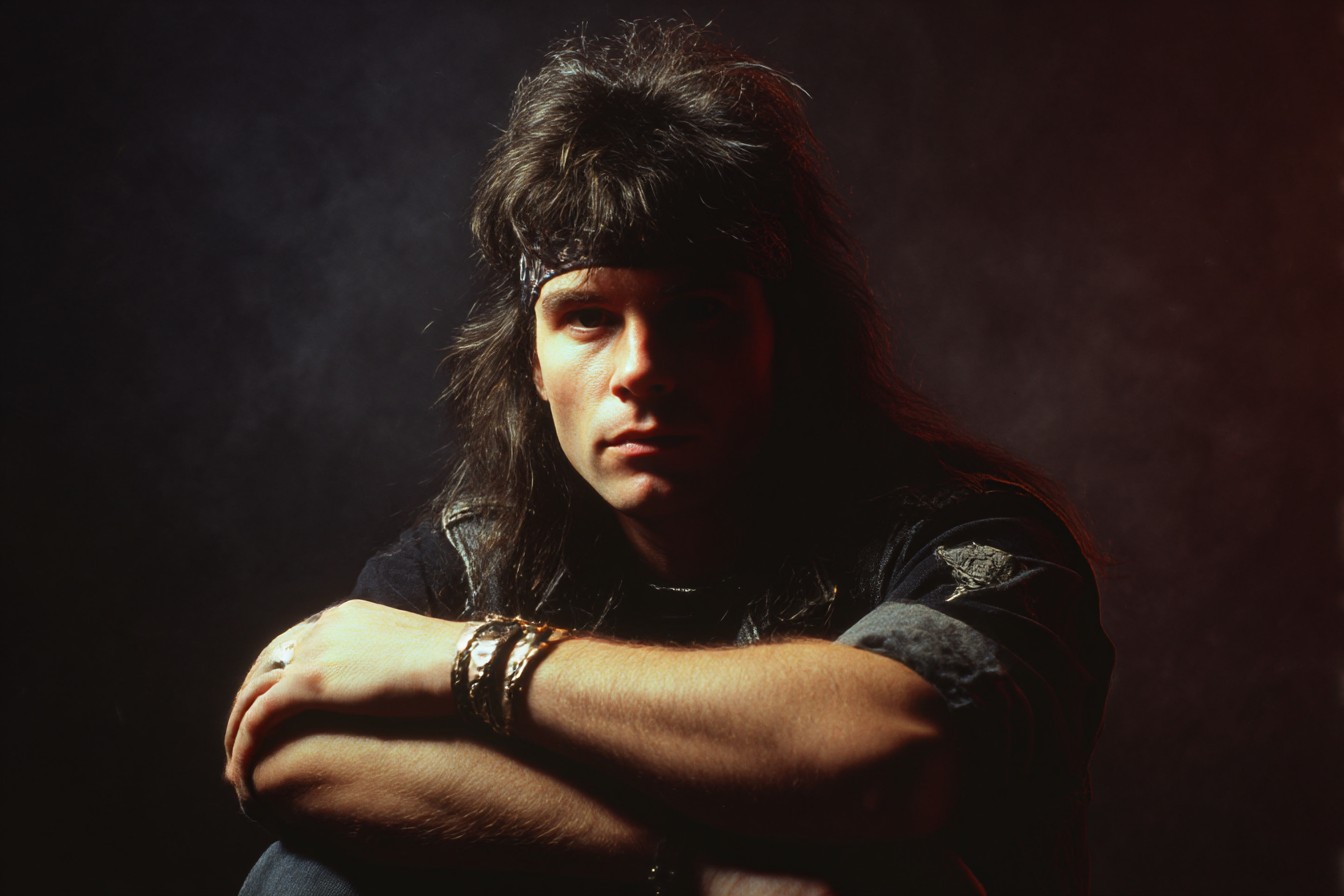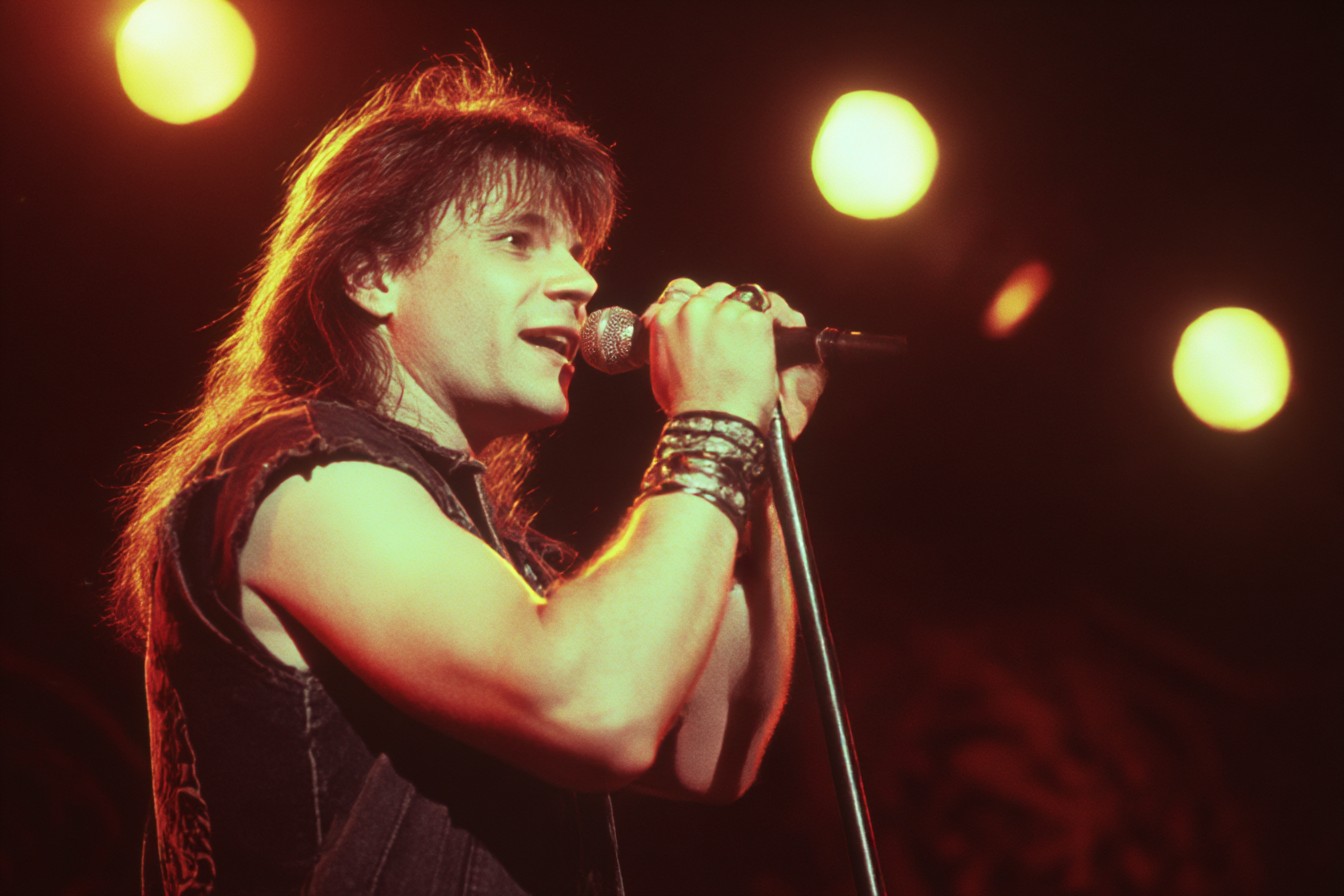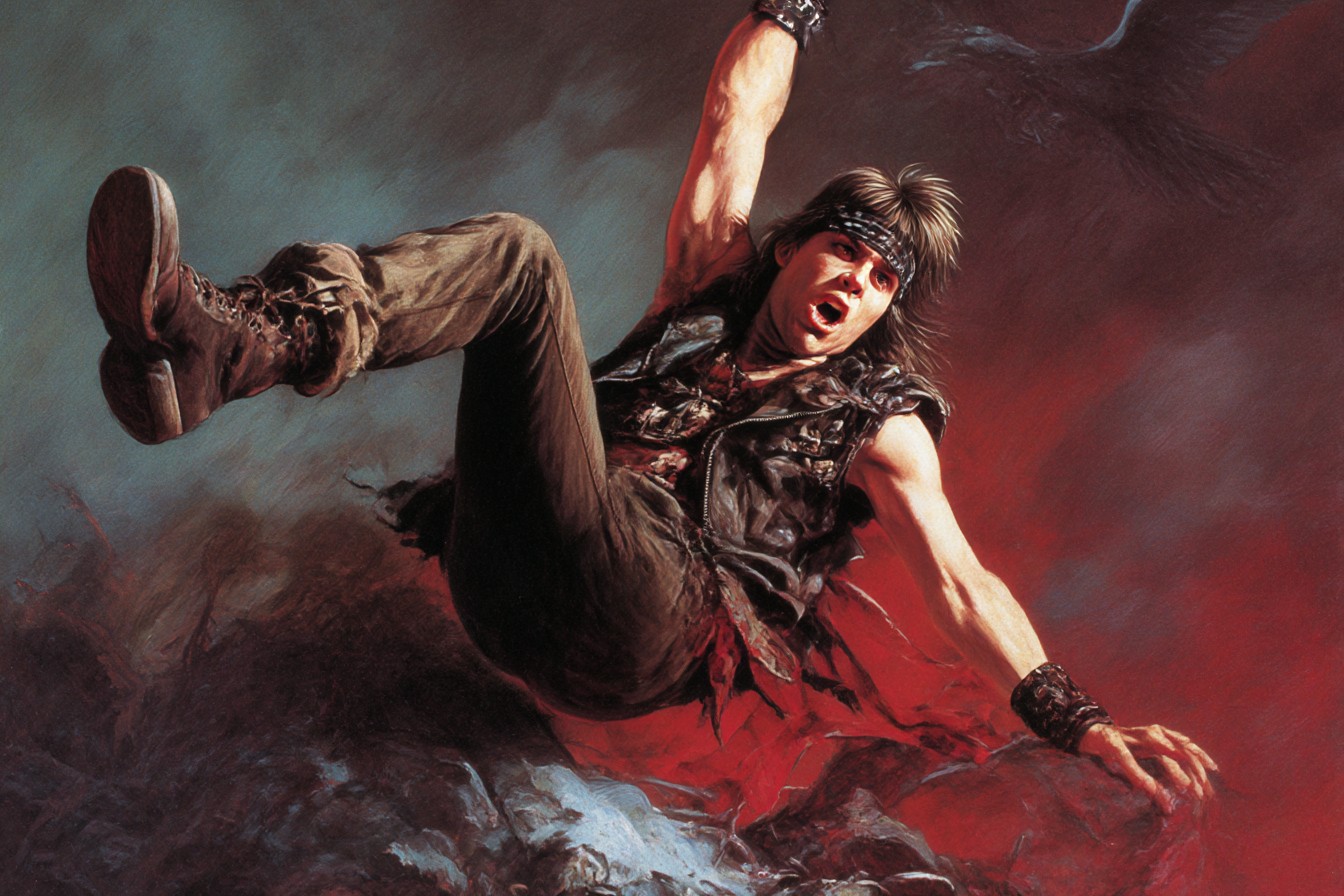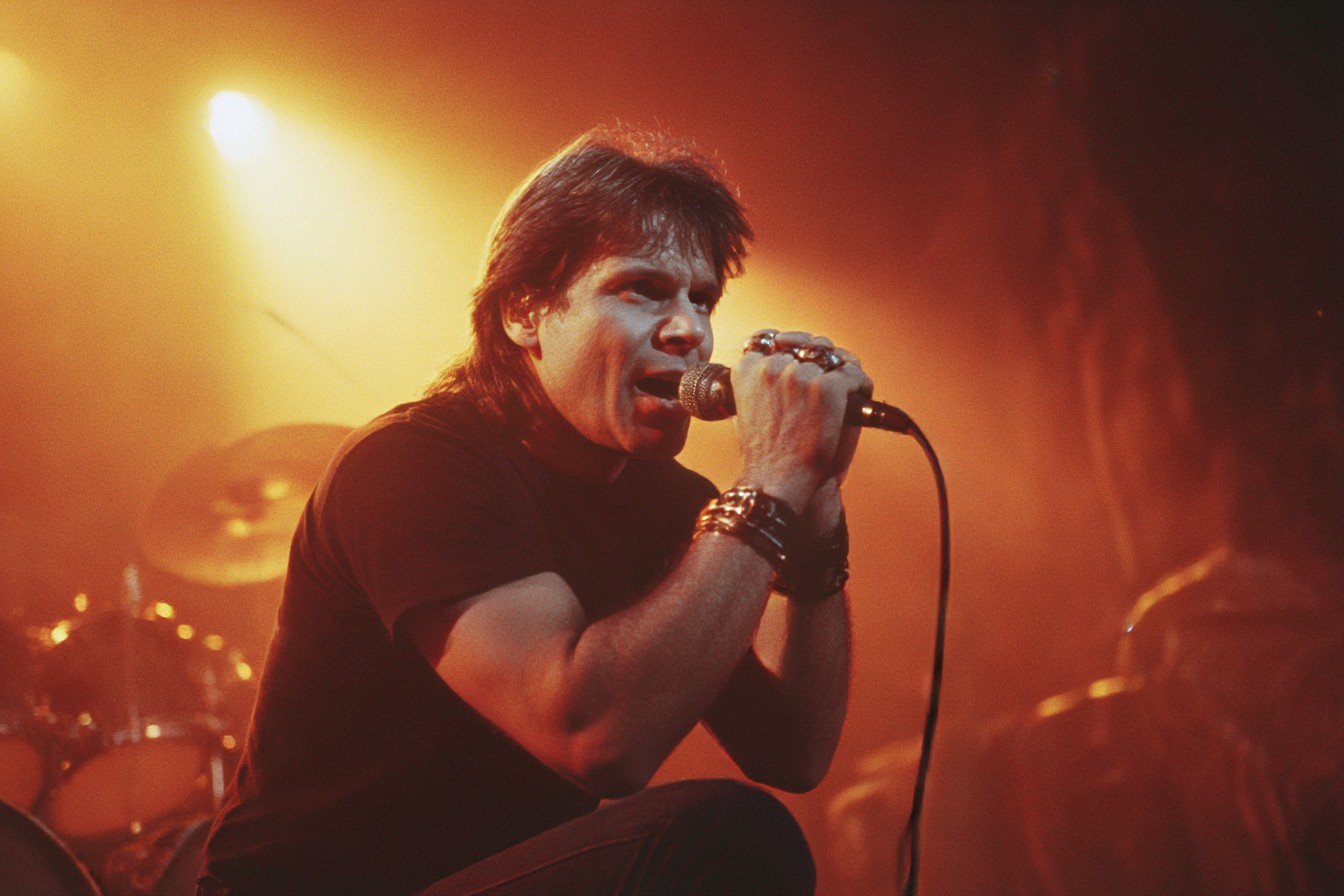Let’s set the scene: 1997, and the heavy metal landscape was bleak at best, apocalyptic at worst. Grunge had come and gone, nu-metal was ascending, and traditional heavy metal was about as fashionable as a mullet at a Milan fashion show. Iron Maiden, once the unstoppable juggernaut of the New Wave of British Heavy Metal, was struggling through their Blaze Bayley era with diminishing commercial returns and increasingly restless fans.
Meanwhile, former Maiden vocalist Bruce Dickinson was four years into a solo career that had started promisingly with “Tattooed Millionaire” but had taken a sharp left turn into experimental territory with “Balls to Picasso” and “Skunkworks.” These weren’t bad albums, per se, but they weren’t exactly what fans who had been raised on “The Number of the Beast” and “Powerslave” were hoping for.
Then, seemingly out of nowhere, came “Accident of Birth”—an album that wasn’t just good, wasn’t just a return to form, but was arguably the best traditional heavy metal album anyone had released in years. And the kicker? It featured not just Bruce in full Air Raid Siren mode, but also former Maiden guitarist Adrian Smith, who had left the band in 1990 rather than continue down the more commercial path they were pursuing at the time.
I remember picking up the CD at my local record store with limited expectations. The cover, featuring a disturbing metal-masked baby doll bursting from what appeared to be the womb, was intriguing if not exactly subtle. But hey, subtlety was never heavy metal’s strongest suit. At worst, I figured, it would be another interesting detour in Bruce’s increasingly unpredictable solo career.
The moment “Freak” kicked in, with its thunderous riff and Bruce’s unmistakable wail, it was clear that something special was happening. This wasn’t Bruce trying to distance himself from his Maiden legacy or experiment with contemporary sounds. This was Bruce Dickinson making exactly the kind of music that had made him a metal icon in the first place—dramatic, powerful, unapologetically heavy, and infused with that uniquely British sense of the theatrical that had always set Maiden apart.
And Good. Fucking. Lord. That voice. After years of trying different approaches, Bruce was back in full force, hitting those stratospheric notes that had made him legendary. The years had added a slight rasp to his higher register that actually enhanced the intensity, like a finely aged whiskey developing new complexity with time.
But the real revelation was the partnership with Adrian Smith. Their musical chemistry hadn’t diminished one bit in the years since Smith’s Maiden departure. If anything, they seemed more in sync than ever, with Smith’s melodic sensibility and technical prowess providing the perfect foundation for Bruce’s vocal acrobatics.
The album was produced by Roy Z, who had worked with Bruce on “Balls to Picasso” and would go on to produce several more solo efforts. His approach highlighted the strengths of both Bruce and Adrian, with a crunchier, more contemporary sound than classic Maiden but still rooted firmly in traditional heavy metal values. The drums hit harder, the guitars were more upfront, and Bruce’s voice was presented with an immediacy that Maiden’s more atmospheric production sometimes diluted.
What made “Accident of Birth” especially noteworthy was that it dropped right in the middle of Maiden’s Blaze Bayley period. Now, I want to be clear—I’ve got nothing against Blaze. The guy has serious pipes and a distinctive style. But he was fighting an uphill battle from day one, stepping into the shoes of one of metal’s most beloved and distinctive vocalists. It was a nearly impossible situation, and the material he was given on “The X Factor” and “Virtual XI” didn’t always play to his strengths.
Listening to “Accident of Birth” and “Virtual XI” (released in 1998) back to back is a study in contrasts. Where Maiden seemed hesitant and slightly lost, unsure of their identity in a changing metal landscape, Bruce and Adrian sounded reinvigorated, confident, even joyful in their return to their heavy metal roots. Tracks like “The Magician,” “Taking the Queen,” and “Darkside of Aquarius” had all the epic sweep and dramatic flourishes of classic Maiden but with an added aggression and modernity that kept them from feeling like mere nostalgia.
I had the chance to interview Bruce during the “Accident of Birth” tour when it came through Chicago. He was in extraordinarily good spirits, bouncing around the backstage area of the Metro with enough energy to power a small city. When I asked him about the album’s more traditional metal approach compared to his recent experimental work, he was refreshingly candid.
“I think I needed to go away and try different things to appreciate what I do best,” he said, pausing to sip from a cup of tea (the most Bruce Dickinson pre-show ritual imaginable). “The ‘Skunkworks’ album was me trying to be contemporary, and there’s some good material there, but it wasn’t playing to my natural strengths. Having Adrian come in changed everything. Suddenly it was, ‘Oh, THIS is who I am musically.’”
When I gently broached the subject of Maiden’s current output compared to his solo work, he was diplomatic but didn’t dodge the question.
“I wish them all the best, truly. But I’m focused on what I’m doing now, and I’ve never been happier with an album.” He grinned. “And the crowds seem to agree. They’re singing along to the new songs almost as loudly as the Maiden classics we throw in at the end.”
He wasn’t wrong. The show that night was revelatory. Bruce was in fine voice, Adrian was clearly having the time of his life away from Maiden’s more structured environment, and the new material stood confidently alongside the handful of Maiden classics they included in the set. When they closed with “Powerslave,” the place erupted, but it didn’t overshadow the enthusiastic reception the “Accident of Birth” material had received.
The album’s highlight—and the emotional center of the show that night—was “Man of Sorrows,” a epic, quasi-ballad that builds from a delicate, almost prog-rock opening to a soaring chorus that showcases Bruce’s voice at its most powerful and expressive. When he hit the final high note of “I am the man of sorroooows!” live, I swear the temperature in the room went up ten degrees from the collective energy of the crowd.
What’s particularly interesting about “Accident of Birth” in retrospect is how it foreshadowed the eventual reunion of Bruce and Adrian with Maiden in 1999. The album proved beyond any doubt that the chemistry between these musicians was still there, still potent, and still capable of producing world-class heavy metal. More than that, it showed that there was still a hungry audience for traditional heavy metal done right, even in an era when the genre was supposed to be dead and buried.
In a way, “Accident of Birth” served as both a proof of concept and a dry run for what would become Maiden’s triumphant comeback with “Brave New World” in 2000. The elements that made that album such a successful return—Bruce’s renewed vocal confidence, Adrian’s melodic guitar work, a slightly modernized production that didn’t sacrifice the band’s essential character—were all present on “Accident of Birth” three years earlier.
The core band on the album—Bruce, Adrian, Roy Z on additional guitars, Eddie Casillas on bass, and David Ingraham on drums—gelled remarkably well for a relatively new configuration. They had a rhythmic tightness and dynamic sensibility that allowed them to tackle both straightforward rockers like “Taking the Queen” and more progressive, complex pieces like “Darkside of Aquarius” with equal conviction.
Beyond the musicianship and production, what really makes “Accident of Birth” stand out is the songwriting. These are proper songs, not just collections of riffs with vocals on top. They have dynamic movement, memorable choruses, and that quintessentially British heavy metal flair for the dramatic without veering into self-parody. Tracks like “Road to Hell” and “The Magician” have the narrative quality that marked Bruce’s best work with Maiden, spinning vivid stories within their heavy framework.
The album’s reception at the time was enthusiastic among metal fans, though it didn’t make much of a dent in the broader music world, which was still largely disinterested in traditional heavy metal. Magazines like Metal Hammer and Kerrang! gave it strong reviews, recognizing it as a significant return to form, but mainstream publications largely ignored it, as they did most metal in that era.
Sales were respectable but not spectacular—solid for a metal album in 1997 but nowhere near what Bruce had seen with Maiden in their heyday. However, the tour was a different story. Venues that had been booked based on the modest expectations set by the “Skunkworks” tour often proved too small, with shows selling out quickly and buzz building through word of mouth.
I remember going to that Chicago show with three friends. For the next tour, supporting the equally excellent “The Chemical Wedding” in 1998, our group had grown to twelve, as everyone who’d heard “Accident of Birth” or seen the previous tour wanted in on the action. That kind of grassroots growth was happening across the metal world, laying the groundwork for what would become a full-scale traditional heavy metal renaissance in the 2000s.
Looking back, it’s clear that “Accident of Birth” was more than just a great album—it was a pivotal moment in heavy metal history. It caught Bruce and Adrian at a creative peak, demonstrated that traditional heavy metal could still be vital and relevant in the late ’90s, and ultimately helped pave the way for Maiden’s reunion and subsequent decades of success.
It also stands as a lesson in artistic integrity. Bruce could have easily capitalized on his Maiden legacy by making a solo album that was essentially Maiden-lite from the start. Instead, he took the time to explore different directions, find his own voice outside the band, and then return to traditional metal on his own terms, with a renewed passion and perspective that made “Accident of Birth” feel fresh rather than rehashed.
When I spin the album now—usually the limited-edition vinyl reissue with its superior mastering and the bonus track “Wicker Man,” which would later be reworked for Maiden’s “Brave New World”—I’m still struck by how vital and immediate it sounds. There’s none of the hesitancy or identity crisis that plagued Maiden’s Blaze-era material, just a celebration of what makes heavy metal special in the hands of true masters of the form.
In my personal ranking of Bruce’s solo output, “Accident of Birth” sits at the very top, slightly edging out “The Chemical Wedding” (which is arguably more ambitious but slightly less consistent) and miles ahead of his other solo efforts. And yes, at the risk of committing heavy metal heresy, I’d put it above both “The X Factor” and “Virtual XI” in the Maiden discography without a moment’s hesitation.
If you’re a Maiden fan who has somehow missed this chapter of Bruce and Adrian’s musical journey, do yourself a favor and seek out “Accident of Birth.” It’s more than just a historical curiosity or a footnote in Maiden’s story—it’s a legitimate classic that deserves a place alongside the best work of either Bruce or Maiden’s discographies.
And if you’re one of those fans who discovered metal in the 2000s or later, after Maiden’s reunion had already cemented their legendary status, “Accident of Birth” offers a fascinating glimpse of what might have been if Bruce and Adrian had continued on their own path rather than rejoining their former band. Based on the quality of this album and its follow-up, that alternate timeline would have been pretty damn impressive in its own right.
Great music often comes from unexpected places and circumstances. “Accident of Birth” emerged from a period when traditional heavy metal was supposedly dead and buried, when its creators were supposedly past their prime, when everything about the industry said it shouldn’t have worked. And yet, through sheer quality and the undeniable chemistry of the musicians involved, it not only worked but helped trigger a renaissance that continues to this day.
Not bad for an album that, true to its title, almost wasn’t supposed to happen at all.






Leave a Reply